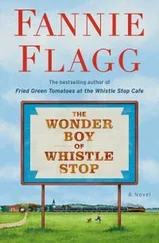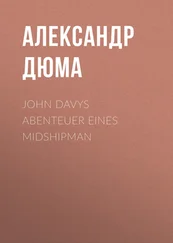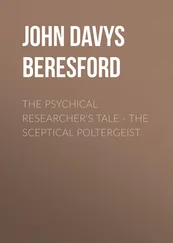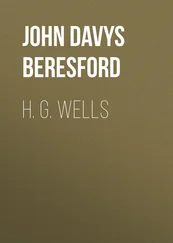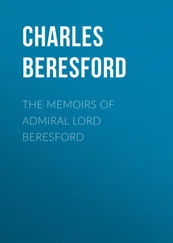John Davys Beresford - The Wonder
Здесь есть возможность читать онлайн «John Davys Beresford - The Wonder» — ознакомительный отрывок электронной книги совершенно бесплатно, а после прочтения отрывка купить полную версию. В некоторых случаях можно слушать аудио, скачать через торрент в формате fb2 и присутствует краткое содержание. Жанр: foreign_prose, foreign_antique, на английском языке. Описание произведения, (предисловие) а так же отзывы посетителей доступны на портале библиотеки ЛибКат.
- Название:The Wonder
- Автор:
- Жанр:
- Год:неизвестен
- ISBN:нет данных
- Рейтинг книги:3 / 5. Голосов: 1
-
Избранное:Добавить в избранное
- Отзывы:
-
Ваша оценка:
- 60
- 1
- 2
- 3
- 4
- 5
The Wonder: краткое содержание, описание и аннотация
Предлагаем к чтению аннотацию, описание, краткое содержание или предисловие (зависит от того, что написал сам автор книги «The Wonder»). Если вы не нашли необходимую информацию о книге — напишите в комментариях, мы постараемся отыскать её.
The Wonder — читать онлайн ознакомительный отрывок
Ниже представлен текст книги, разбитый по страницам. Система сохранения места последней прочитанной страницы, позволяет с удобством читать онлайн бесплатно книгу «The Wonder», без необходимости каждый раз заново искать на чём Вы остановились. Поставьте закладку, и сможете в любой момент перейти на страницу, на которой закончили чтение.
Интервал:
Закладка:
I have mentioned the wind as a factor in obtaining the swerve. It was a head-wind that Stott required. I have seen him, for sport, toss a cricket ball into the teeth of a gale, and make it describe the trajectory of a badly sliced golf-ball. This is why the big pavilion at Ailesworth is set at such a curious angle to the ground. It was built in the winter following Hampdenshire's second season of first-class cricket, and it was so placed that when the wickets were pitched in a line with it, they might lie south-west and north-east, or in the direction of the prevailing winds.
V
The first time I ever saw Ginger Stott, was on the occasion of the historic encounter with Surrey; Hampdenshire's second engagement in first-class cricket. The match with Notts, played at Trent Bridge a few days earlier, had not foreshadowed any startling results. The truth of the matter is that Stott had been kept, deliberately, in the background; and as matters turned out his services were only required to finish off Notts' second innings. Stott was even then a marked man, and the Hampdenshire captain did not wish to advertise his methods too freely before the Surrey match. Neither Archie Findlater, who was captaining the team that year, nor any other person, had the least conception of how unnecessary such a reservation was to prove. In his third year, when Stott had been studied by every English, Australian, and South African batsman of any note, he was still as unplayable as when he made his début in first-class cricket.
I was reporting the Surrey match for two papers, and in company with poor Wallis interviewed Stott before the first innings.
His appearance made a great impression on me. I have, of course, met him, and talked with him many times since then, but my most vivid memory of him is the picture recorded in the inadequate professional dressing-room of the old Ailesworth pavilion.
I have turned up the account of my interview in an old press-cutting book, and I do not know that I can do better than quote that part of it which describes Stott's personal appearance. I wrote the account on the off chance of being able to get it taken. It was one of my lucky hits. After that match, finished in a single day, my interview afforded copy that any paper would have paid heavily for, and gladly.
Here is the description:
"Stott—he is known to every one in Ailesworth as 'Ginger' Stott—is a short, thick-set young man, with abnormally long arms that are tanned a rich red up to the elbow. The tan does not, however, obliterate the golden freckles with which arm and face are richly speckled. There is no need to speculate as to the raison d'être of his nickname. The hair of his head, a close, short crop, is a pale russet, and the hair on his hands and arms is a yellower shade of the same colour. 'Ginger' is, indeed, a perfectly apt description. He has a square chin and a thin-lipped, determined mouth. His eyes are a clear, but rather light blue, his forehead is good, broad, and high, and he has a well-proportioned head. One might have put him down as an engineer, essentially intelligent, purposeful, and reserved."
The description is journalistic, but I do not know that I could improve upon the detail of it. I can see those queer, freckled, hairy arms of his as I write—the combination of colours in them produced an effect that was almost orange. It struck one as unusual....
Surrey had the choice of innings, and decided to bat, despite the fact that the wicket was drying after rain, under the influence of a steady south-west wind and occasional bursts of sunshine. Would any captain in Stott's second year have dared to take first innings under such conditions? The question is farcical now, but not a single member of the Hampdenshire Eleven had the least conception that the Surrey captain was deliberately throwing away his chances on that eventful day.
Wallis and I were sitting together in the reporters' box. There were only four of us; two specials,—Wallis and myself,—a news-agency reporter, and a local man.
"Stott takes first over," remarked Wallis, sharpening his pencil and arranging his watch and score-sheet—he was very meticulous in his methods. "They've put him to bowl against the wind. He's medium right, isn't he?"
"Haven't the least idea," I said. "He volunteered no information; Hampdenshire have been keeping him dark."
Wallis sneered. "Think they've got a find, eh?" he said. "We'll wait and see what he can do against first-class batting."
We did not have to wait long.
As usual, Thorpe and Harrison were first wicket for Surrey, and Thorpe took the first ball.
It bowled him. It made his wicket look as untidy as any wicket I have ever seen. The off stump was out of the ground, and the other two were markedly divergent.
"Damn it, I wasn't ready for him," we heard Thorpe say in the professionals' room. Thorpe always had some excuse, but on this occasion it was justified.
C. V. Punshon was the next comer, and he got his first ball through the slips for four, but Wallis looked at me with a raised eyebrow.
"Punshon didn't know a lot about that," he said, and then he added, "I say, what a queer delivery the chap has. He stands and shoots 'em out. It's uncanny. He's a kind of human catapult." He made a note of the phrase on his pad.
Punshon succeeded in hitting the next ball, also, but it simply ran up his bat into the hands of short slip.
"Well, that's a sitter, if you like," said Wallis. "What's the matter with 'em?"
I was beginning to grow enthusiastic.
"Look here, Wallis," I said, "this chap's going to break records."
Wallis was still doubtful.
He was convinced before the innings was over.
There must be many who remember the startling poster that heralded the early editions of the evening papers:
For once sub-editors did not hesitate to give the score on the contents bill. That was a proclamation which would sell. Inside, the headlines were rich and varied. I have an old paper by me, yellow now, and brittle, that may serve as a type for the rest. The headlines are as follows:—
The "double hat-trick" was six consecutive wickets, the last six, all clean bowled.
"Good God!" Wallis said, when the last wicket fell, and he looked at me with something like fear in his eyes. "This man will have to be barred; it means the end of cricket."
VI
Stott's accident came during the high flood of Hampdenshire success. For two years they held undisputed place as champion county, a place which could not be upset by the most ingenious methods of calculating points. They three times defeated Australia, and played four men in the test matches. As a team they were capable of beating any Eleven opposed to them. Not even the newspaper critics denied that.
The accident appeared insignificant at the time. The match was against Notts on the Trent Bridge ground. I was reporting for three papers; Wallis was not there.
Stott had been taken off. Notts were a poor lot that year and I think Findlater did not wish to make their defeat appear too ignominious. Flower was bowling; it was a fast, true wicket, and Stott, who was a safe field, was at cover-point.
G. L. Mallinson was batting and making good use of his opportunity; he was, it will be remembered, a magnificent though erratic hitter. Flower bowled him a short-pitched, fast ball, rather wide of the off-stump. Many men might have left it alone, for the ball was rising, and the slips were crowded, but Mallinson timed the ball splendidly, and drove it with all his force. He could not keep it on the ground, however, and Stott had a possible chance. He leaped for it and just touched the ball with his right hand. The ball jumped the ring at its first bound, and Mallinson never even attempted to run. There was a big round of applause from the Trent Bridge crowd.
Читать дальшеИнтервал:
Закладка:
Похожие книги на «The Wonder»
Представляем Вашему вниманию похожие книги на «The Wonder» списком для выбора. Мы отобрали схожую по названию и смыслу литературу в надежде предоставить читателям больше вариантов отыскать новые, интересные, ещё непрочитанные произведения.
Обсуждение, отзывы о книге «The Wonder» и просто собственные мнения читателей. Оставьте ваши комментарии, напишите, что Вы думаете о произведении, его смысле или главных героях. Укажите что конкретно понравилось, а что нет, и почему Вы так считаете.

